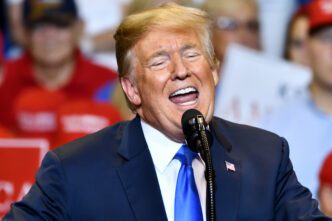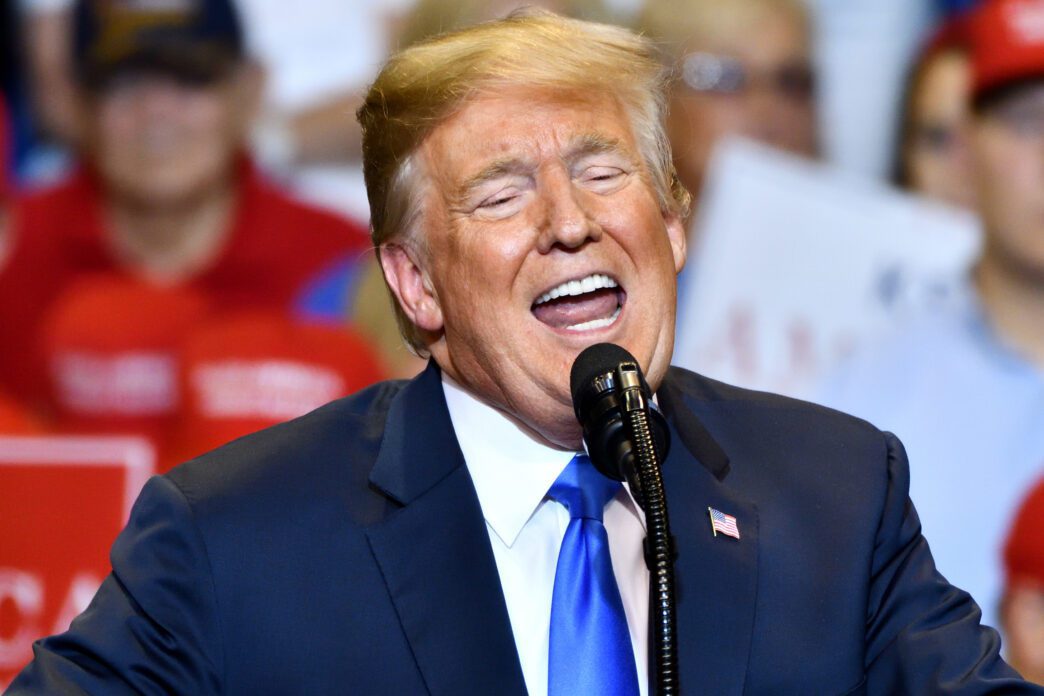Executive Summary
The Story So Far
Why This Matters
Who Thinks What?
President Donald Trump delivered remarks at the McDonald’s Impact Summit in Washington, D.C., on Monday, November 17, 2025, proclaiming an economic “golden age” and asserting that prices were declining. The speech, intended to address widespread concerns over affordability, comes as many Americans continue to grapple with significant price pressures for essential goods and services, leading analysts to question its potential impact on his political standing.
Economic Claims and Public Perception
During his address, Trump described the economy as “super-sized” and highlighted the benefits of a strong stock market, including its positive effect on 401(k) plans. He emphasized that “affordability” should be a term associated with his administration, accusing Democrats of misrepresenting economic realities and historical inflation figures.
However, the President’s optimistic assessment appears to contrast with the experiences of millions of Americans facing persistent high costs for food, housing, and healthcare. While inflation has decreased to 3.0% from its peak of 9.1% during the previous administration, prices continue to rise, and voters have not yet adjusted to the post-pandemic price shock.
Analysts suggest that Trump is now encountering the “incumbent’s curse,” as voters are increasingly holding his administration responsible for economic conditions after nearly ten months in office. Kevin Hassett, director of Trump’s National Economic Council, acknowledged the shift, stating that Democrats are now attributing inflation to the current administration, even if it originated from prior spending policies.
Policy Initiatives and Criticisms
The Trump administration has implemented several policies aimed at easing financial burdens, including efforts to reduce prescription drug costs, a temporary elimination of taxes on most tips, and deregulation intended to foster small business growth. Trump argued that these measures would ultimately benefit all Americans.
Despite these efforts, there is growing evidence suggesting that some of the administration’s policies, particularly global trade tariffs, may be exacerbating rising costs. The conservative-leaning Tax Foundation reported that tariffs amounted to an effective tax hike of $1,200 on the average American household, a figure projected to increase to $1,600 next year. A recent CNN poll indicated that 61% of Americans believe Trump’s policies have “worsened economic conditions.”
Proposed new initiatives, such as potential $2,000 tariff revenue payments, are being considered, though critics like Democratic Senate Minority Leader Chuck Schumer warn they might not alleviate the underlying issues and could risk spiking inflation. Another idea, 50-year mortgages, aims to improve home accessibility but raises concerns about long-term debt.
Tariffs and Trade Strategy
The White House has implicitly acknowledged the impact of tariffs by issuing an executive order to cut duties on certain goods like beef, tomatoes, coffee, and bananas. While Hassett argued these cuts would reduce prices due to increased supply rather than tariff removal, the broader strategy of slashing tariffs across the board is unlikely as it would undermine the President’s central economic policy focused on reviving American manufacturing.
This long-term manufacturing strategy, while aiming for economic revival, is expected to involve a period of adjustment and potential economic pain, which could be politically challenging with midterm elections less than a year away.
Political Repercussions
President Trump’s political narrative control, a hallmark of his career, appears to be facing challenges. Recent events, such as his reversal on compelling the release of Jeffrey Epstein files and criticism from within his own base, including Georgia Representative Marjorie Taylor Greene, suggest a potential disconnect with core voter concerns regarding the cost of living.
His speech at the McDonald’s event, characterized by some as lacking empathy and containing misleading statistics about falling prices, further fueled perceptions of being out of touch. The President’s unscripted remarks, including an anecdote about his preference for more tartar sauce, underscored his refusal to adhere strictly to prepared texts, a trait he acknowledged during the event.
Looking Ahead
President Trump faces an ongoing challenge in convincing Americans that the economy is thriving when many continue to struggle with daily expenses. The perceived gap between his optimistic economic pronouncements and the reality for millions of households remains a significant political vulnerability for his administration.








